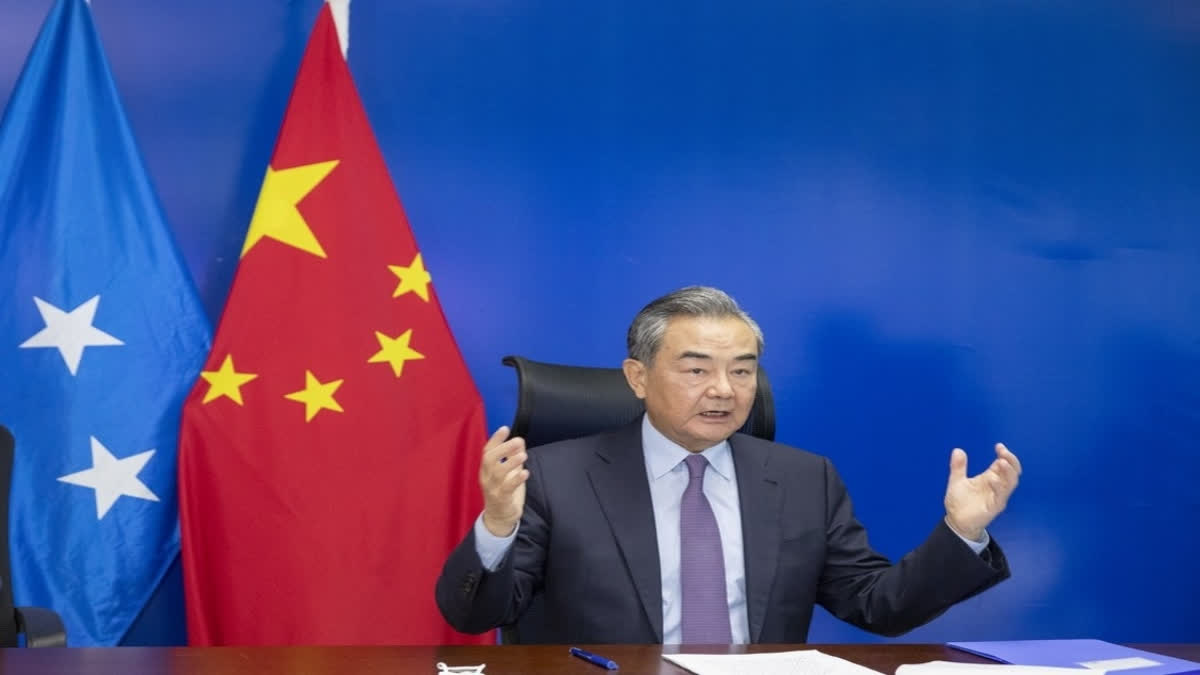New Delhi: Even as India is trying to come to grips with the political upheaval in Bangladesh, New Delhi’s attention will also be drawn to fresh developments this month in the civil war-torn other eastern neighbour of Myanmar.
The ruling military junta of Myanmar suffered a historic loss at the hands of the resistance earlier this month when the Three Brotherhood Alliance’s Myanmar National Democratic Alliance Army (MNDAA) seized the Northeastern Command headquarters of the Tatmadaw or Myanmar army in northern Shan State bordering China on August 3.
This was the first-ever loss of a military command by the army since the Three Brotherhood Alliance started Operation 1027 against the military junta in October last year. The Alliance comprises the MNDAA, the Ta’ang National Liberation Army (TNLA) and the Arakan Army (AA). Under Operation 1027, the joint forces launched simultaneous attacks in multiple towns in northern Shan State, targeting the Myanmar Army, the Myanmar Police Force, and pro-military militia installations.
According to reports, following the loss of the command at Lashio in Shan State, the junta has ratcheted up nationalistic rhetoric and anti-China sentiments in the country. Without naming China, junta leader Senior General Min Aung Hlaing said in a televised address on August 5 that the conflict in his country is being prolonged by foreign countries backing armed resistance groups.
According to The Irrawaddy news portal, the following day, military supporters organised rallies against the Brotherhood Alliance in Yangon and Naypyitaw. More rallies took place in Naypyitaw and Karen State’s Hpa-an on Friday and Saturday with the junta’s blessing.
“Without naming China, Min Aung Hlaing claimed ordnance factories built in territory controlled by ethnic armed organisations on the China-Myanmar border were selling weapons to People’s Defence Force (PDF) groups,” the Irrawaddy report stated. “The junta boss alleged weapons seized from PDF groups had been traced to the factories and that hired foreign technicians were involved. He also claimed that certain foreign countries were funding the armed groups and supplying them with food, pharmaceuticals, arms, technology and administrative aid.”
The report further cited pro-junta media outlet NP News as alleging that Brotherhood Alliance troops were hoisting not only their own flags but also other red flags with stars – meaning the Chinese flag – in northern Shan State towns they had seized.
“I would like to ask Chinese people born in Myanmar what you would do if China is involved in fighting in northern Myanmar,” the report quoted NP News’ Kyaw Myo Min as saying in a video published on August 5, one day before the rallies launched. “If this is a proxy war, if all Myanmar citizens are facing an indirect invasion, for my part, I would raise the awareness of all Myanmar people.”
Following this, on August 6, the Chinese Embassy in Myanmar urged all its nationals to evacuate from conflict-hit areas in Shan State. It is in the midst of all these developments that Beijing on Tuesday announced Chinese Foreign Minister Wang Yi’s visit to Myanmar.
“Member of the Political Bureau of the CPC Central Committee and Minister of Foreign Affairs Wang Yi will visit Myanmar and travel to Thailand to co-chair the ninth Lancang-Mekong Cooperation Foreign Ministers’ Meeting and attend the Informal Discussion Between the Foreign Ministers of China, Lao PDR, Myanmar and Thailand from August 14 to 17,” Chinese Foreign Ministry spokesperson Lin Jian stated.
Though China is a major ally and arms supplier to the military junta, it also reportedly keeps engaging with the resistance forces. In fact, on August 7, Chinese special envoy to Myanmar Deng Xijun met with Min Aung Hlaing in Naypyitaw for talks on what the junta media termed “internal peace in Myanmar and border stability”, according to The Irrawaddy report.
All these developments will be a cause of concern for New Delhi as India has significant interests in Myanmar. As a neighbouring country with which India shares a 1,643-km-long border, Myanmar is a key player in New Delhi’s Act East Policy and its efforts to maintain stability in the northeastern region.
Myanmar is strategically located as the bridge between South Asia and Southeast Asia. India’’s Act East policy aims to enhance connectivity and economic integration with Southeast Asia, and Myanmar is pivotal in this regard. The country serves as India’s gateway to the Association of Southeast Asian Nations (ASEAN) region.
Why the current dissatisfaction of the junta with Beijing will draw the attention of New Delhi is because China has a strong influence in Myanmar, with significant investments and infrastructure projects under Chinese President Xi Jinping’s pet Belt and Road Initiative (BRI). For India, maintaining a close relationship with Myanmar is crucial to counterbalance China’s growing presence in its neighbourhood and to ensure that Myanmar does not become overly dependent on China.
India has been actively involved in infrastructure projects aimed at improving connectivity with Myanmar. The Kaladan Multi-Modal Transit Transport Project (KMTTP) is a key initiative that aims to connect India’s northeastern states to the Bay of Bengal through Myanmar, enhancing trade and economic integration. Another significant project is the India-Myanmar-Thailand Trilateral Highway, which aims to connect India with Thailand through Myanmar, facilitating trade and people-to-people exchanges.
Though India has been engaging diplomatically with the junta leaders, New Delhi has also been working with resistance groups like the Arakan Army to safeguard its interests in Myanmar. It is in view of all these that the visit of Wang Yi to Myanmar in the wake of the latest developments will be of special interest for New Delhi.
Read More



